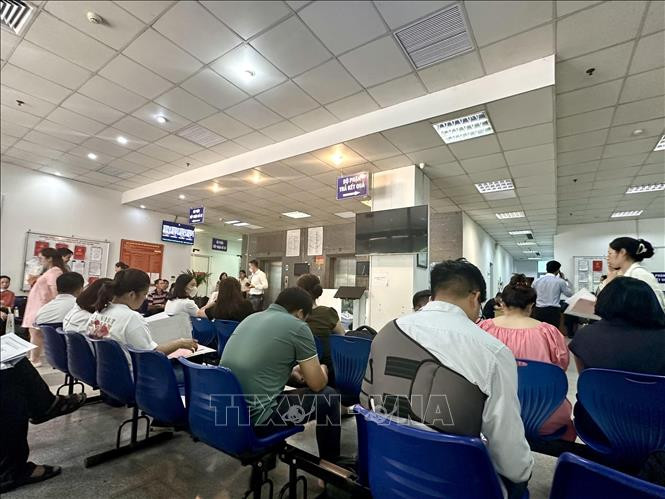Experts have noted that the reality from the market shows that the cash flow trend is and will "flow strongly" into auctioned land in urban and residential areas.

This is a clean type of land, not involved in litigation disputes. This product has a red book and infrastructure, helping the owner to be ready to build a house for business, rent, and earn monthly cash flow.
The Chairman of the Vietnam Association of Realtors (VARS) cited that land auctions in some localities are taking place vigorously with a sharp increase in the number of applications. In the context of high apartment prices and still being scarce, it is reasonable for investors to choose another direction for their cash flow.
Especially with the divided plots of land, located in the developed areas associated with industry, trade and services, with complete infrastructure, the price level is not too high... will continue to become the target of investors in the coming time - Mr. Dinh analyzed.
Since the beginning of the year, many localities have organized land auctions in urban areas and new residential areas with a much higher frequency than the same period last year. Land auctions have been bustling and not only has the number of applications skyrocketed but the successful auction rates have also been 20% to 10 times higher than the starting price.
Dr. - Architect Dao Ngoc Nghiem - Vice President of the Vietnam Urban Planning and Development Association assessed that, from a planning perspective, it is completely normal and reasonable for localities to open land auctions, expand investment attraction, roll out the red carpet to invite investors... when the land fund in the inner city is not much left and expanding the development of satellite cities to reduce pressure on the inner city has been an idea and goal for decades.
But two recent land auctions in Hanoi have surprised the market because one lot of land had a winning price 18 times higher than the starting price. However, this phenomenon has caused experts to warn about the consequences behind such land auctions with "virtual prices".
In particular, in the context of Hanoi having almost no new projects, the supply of land is forecast to become increasingly scarce when the 2023 Real Estate Business Law prohibits the subdivision and sale of land in 105 cities and towns, so auctioned land is becoming more and more attractive.
In the context of the forecasted continued strong cash flow into auctioned land, lawyer Truong Thanh Duc - Director of ANVI Law Firm, Arbitrator of the Vietnam International Arbitration Council, said that there needs to be technical adjustments to manage, so that this land auction does not cause consequences for society.
Economically, land auctions with prices as high as “virtual” as the recent ones will make it increasingly difficult for people to access land and housing. The economy will also develop slowly, money will be buried in land, not fully exploiting the value of land. At the same time, there will be significant impacts on the management and implementation of land law policies.
The 2024 Land Law officially took effect on August 1, 2024. Continuous land auctions and high winning prices may cause land prices in these localities to establish a new land price level. Meanwhile, the 2024 Land Law stipulates that every year, provinces and cities must develop a new land price list close to market prices.
If the auctioned land benchmark is used as the data for the construction of a new land price list, it will unintentionally create a new land price that is very high, far beyond the reality in these localities. Thus, pushing up land prices in these land auctions has affected the implementation of land policies, specifically the construction of a new land price list.
Not to mention, when a new land price level has been established in these localities and kept at such a high level, it will make the implementation of land policies more difficult and complicated. For example, too high land prices will create complications for compensation and site clearance.
Therefore, the State's real estate market regulation activities will also face many difficulties. When building a land price list based on such data, it can lead to a rapid and unsustainable increase in real estate prices.
Sharing the same view, Mr. Dao Ngoc Nghiem also pointed out that the fact that the auctioned land price is too high, besides the positive effect of helping to increase the local budget revenue, there are hidden risks that may occur. In Hanoi and some other provinces and cities, there are many abandoned plots of land, villas, and more broadly, "abandoned" urban areas because land speculators "bury their capital" there, leading to a waste of land resources and making the local general planning messy and unsightly.
The auctioned land may not be the real price, but it will establish a new price level for the entire surrounding area, many people will base on such a price to calculate and push up the transfer price. That means when the locality wants to build infrastructure or attract businesses to invest, it will be more difficult to compensate and resettle when reclaiming land.
The issue is that attracting cash flow into auctioned land to contribute to increasing budget revenue is necessary and in line with the trend, but must be transparent and rigorous so as not to distort and negatively impact the real estate market.